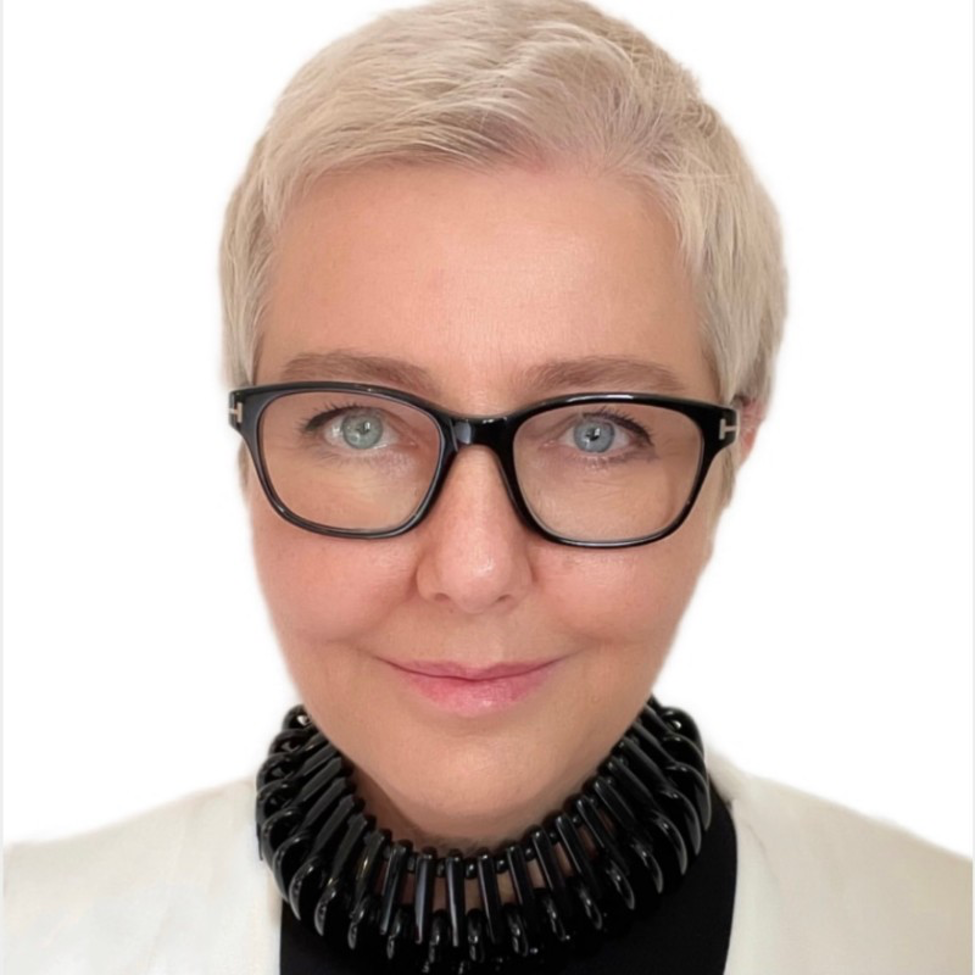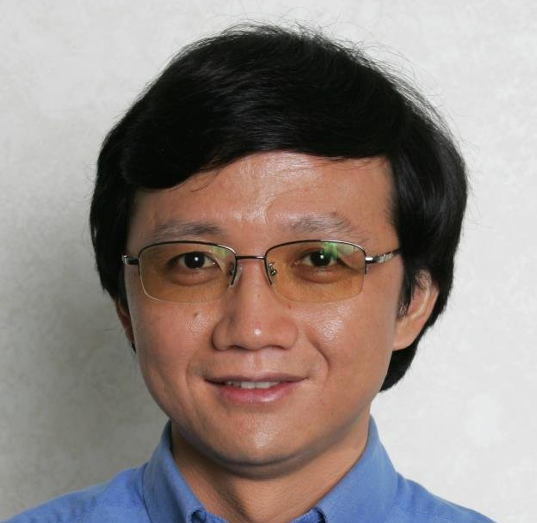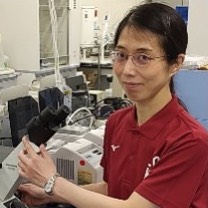Dr. Robert M. Califf was confirmed earlier this year as the 25th Commissioner of Food and Drugs. He also served in 2016 as the 22nd Commissioner, and immediately prior to that as the FDA’s Deputy Commissioner for Medical Products and Tobacco. He has spent a good portion of his career affiliated with Duke University, where he served as a professor of medicine and vice chancellor for clinical and translational research, director of the Duke Translational Medicine Institute, and was the founding director of the Duke Clinical Rese read more...
Speakrs &
Chairpersons
Robert M. Califf, Ph.D.
Commissioner
U.S. Food and Drug Administration (FDA)

Prof. Carlos das Neves, Ph.D.
Chief Scientist
European Food Safety Authority (EFSA)
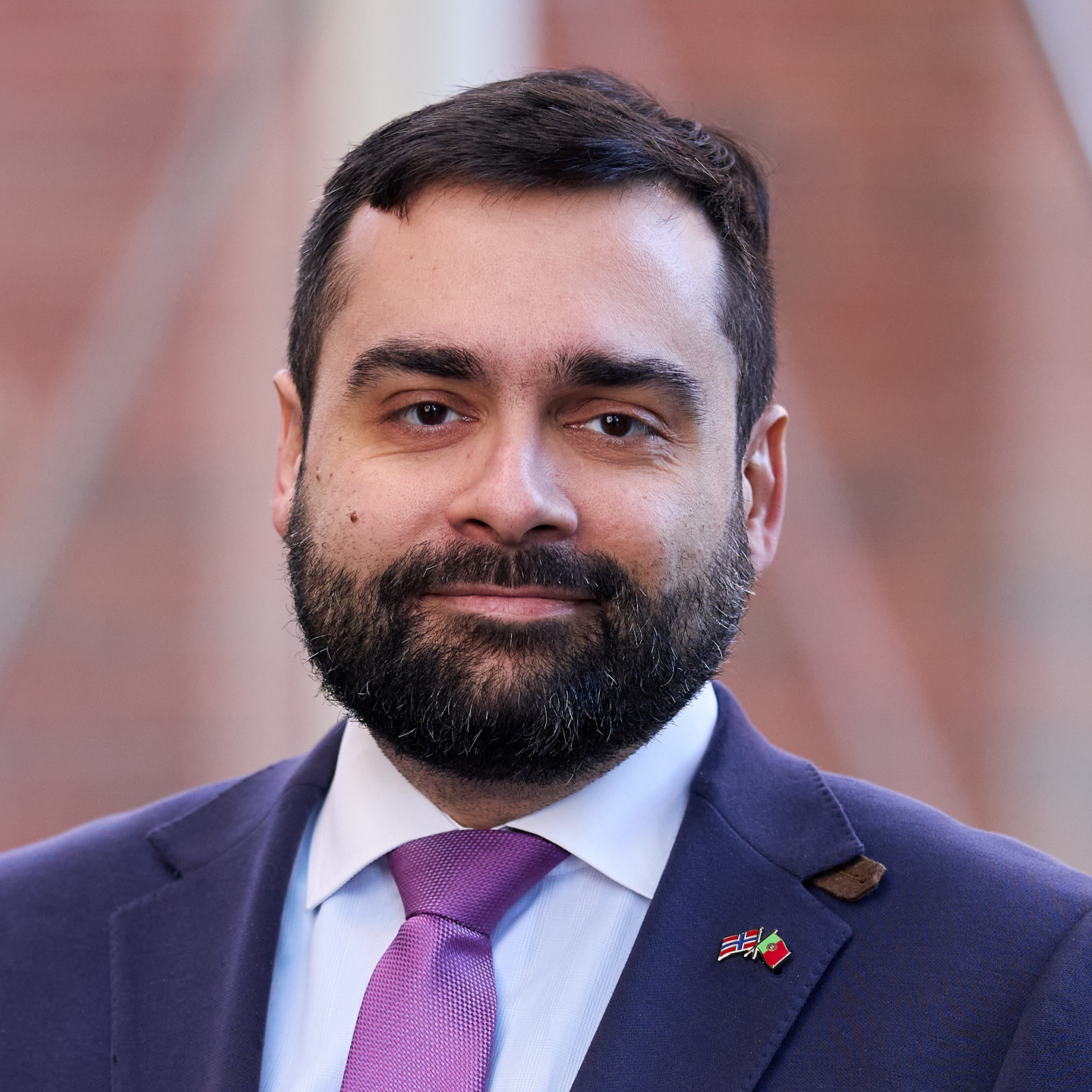
Professor Carlos Gonçalo das Neves, a Portuguese and Norwegian citizen, graduated in Veterinary Medicine, from the Technical University of Lisbon in 2004, and obtained his PhD in veterinary science in 2009 from the Norwegian School of Veterinary Sciences. He holds also a Postgraduate Certificate in Public Health from the London School of Hygiene and Tropical Medicine, and a Certificate in Public Policy from the London School of Economics. He is the Chief Scientist of the European Food Safety Authority, having served previous read more...
Tucker A. Patterson, Ph.D.
Director of National Center for Toxicological Research (NCTR)
U.S. Food and Drug Administration (FDA)
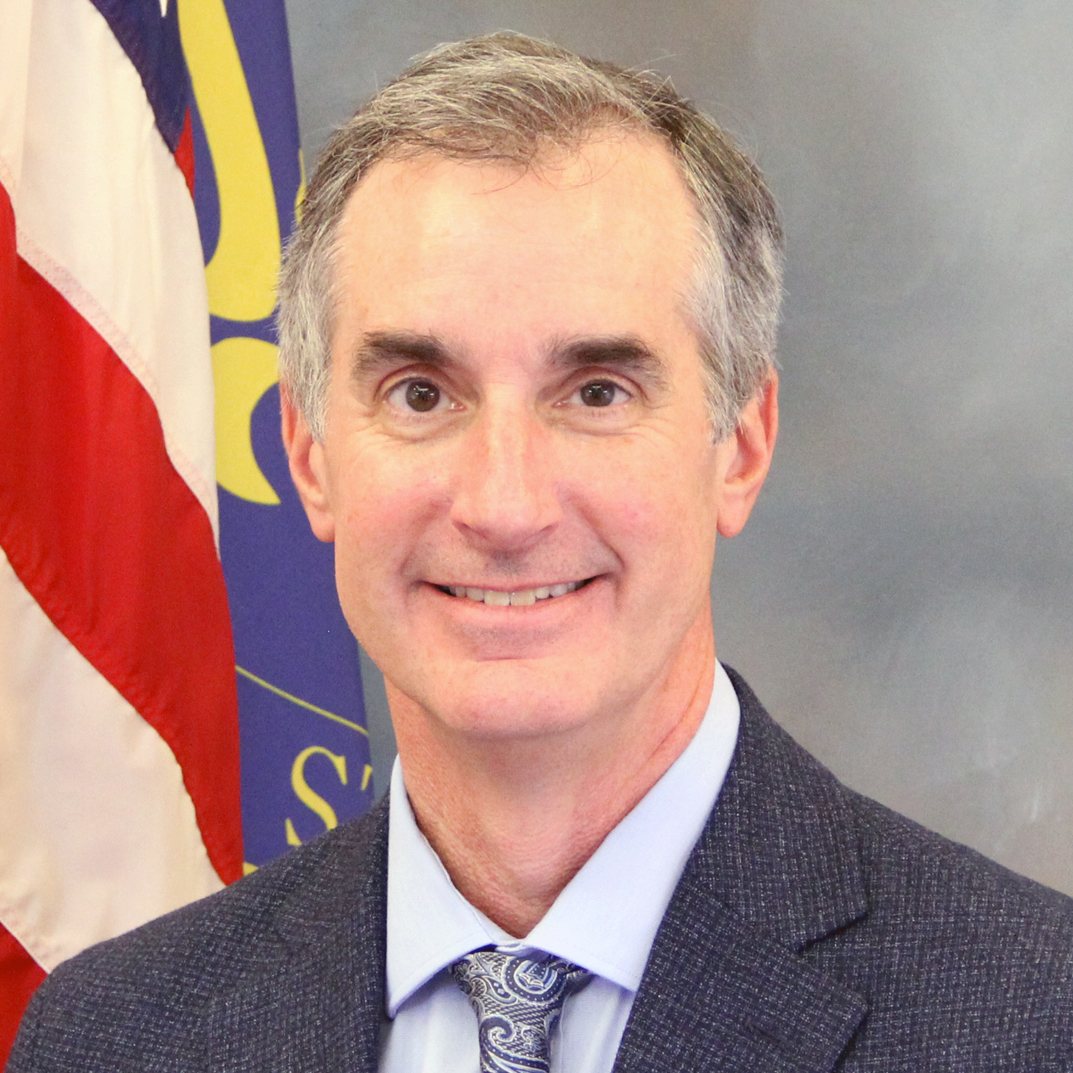
Tucker A. Patterson, Ph.D. is Center Director at the FDA’s National Center for Toxicological Research (NCTR). Dr. Patterson previously served as the Deputy Director for Research in the Office of the Center Director/Office of Research. Prior to this appointment, he served two years as the Associate Director for Science & Policy and over seven years as the Associate Director and Health Science Program Manager in Regulatory Compliance & Risk Management at NCTR. Dr. Patterson received a B.S. in Chemistry from the University of Ark read more...
Sonja Beken, Ph.D.
Chair of the CVMP/CHMP Joint
3Rs Working Party (3RsWP)
European Medicines Agency (EMA)

Sonja Beken holds a Master in Biological Sciences and PhD in Pharmaceutical Sciences from the Vrije Universiteit Brussel (VUB), Belgium and a Master in Applied Toxicology from the University of Surrey, UK. Sonja Beken is the Coordinator of the Unit of non-clinical evaluators at the Belgian Federal Agency for Medicines and Health Products (FAMHP). This Unit is responsible for the evaluation of non-clinical data submitted to support all phases of drug development (e.g. marketing authorizations, clinical trials, EU/national sci read more...
Implementation of the 3RS at the EMA: past, present and future
The European Medicines Agency (EMA) has a long-standing commitment towards the application of the principles of Replacement, Reduction and Refinement (3Rs). This is driven by the requirements of Directive 2010/63/EU, as well as by the crucial need for better tools to predict quality, safety and efficacy of new medicinal products. EMA’s regulatory science strategy 2025, clearly recommends the leverage and qualification of 3R testing approaches or Novel Approach Methodologies (NAMs) and sees engagement with stakeholders as instrumental. It recognises the need for discussion on and definition of clear qualification crite read more...
Mounir Bouhifd, Ph.D.
Regulatory Officer
European Chemicals Agency (ECHA)

Dr Mounir Bouhifd is currently a regulatory officer at the European Chemicals Agency. He is member of the Alternative Methods Team of the computational Assessment unit. Part of his tasks is on the assessment of QSAR predictions. NAMs are another area of his work. Mounir was working on the development and application of Alternative methods and especially their validation, at the European Centre of Validation of Alternative methods (ECVAM). He was also a faculty member at the Johns Hopkins university.
Regulatory landscape and critical Needs for NAMs in the Hazard assessment of industrial chemicals
NAMs to support the screening, prioritisation and read-across are available, continue to be developed and are used to some extent by regulators around the globe, in line with the legal frameworks and regulatory requirements. There are currently only a few endpoints where full replacement of in vivo studies with non-animal methods has been accepted in a way that is suitable for classification and labelling or to conclude on (no)hazard. This presentation will discuss the critical needs for moving towards an animal free system for hazard assessment for industrial chemicals, in line with the regulatory requirements in Eur read more...
Luigi Calzolai, Ph.D.
Project Leader
European Commission Joint Research Centre (EC, JRC)

Luigi Calzolai, Ph.D. Project Leader, Joint Research Centre of the European Commission Dr. Calzolai has a MS (University of Florence) and PhD (University of Siena) in chemistry. After a Postgraduate Research at the University of California, Davis, he joined, in 1998, the Swiss Institute of Technology in Zurich, in the laboratory of the then Nobel laureate Kurth Wuthrich, where he determined the three dimensional structure of prion proteins responsible of neurological disorders, such as Mad Cow Disease. In 2007, he moved to th read more...
Quality attributes and standards for mRNA-based and Lipid-based therapeutics
Quality attributes and standards for mRNA-based and Lipid-based therapeutics RNA and lipid-based therapeutics have emerged as a promising avenue for the treatment of various diseases. mRNA-based vaccines were the most utilized COVID-19 vaccines in Europe and USA; they were developed extremely fast, thus saving thousands of lives. They use lipid nanoparticles to protect the mRNA cargo. In addition to vaccines against infectious diseases RNA therapeutics are being developed in several therapeutic areas: cancer therapy, rare diseases, neuroscience. The characterization of these nanomedicines is challenging due to their in read more...
James Chan, Ph.D.
Junior Principal Investigator
A*STAR
Singapore Institute of Food and Biotechnology Innovation

Dr James Chan graduated with a Bachelor of Pharmacy degree and obtained his doctoral degree in Pharmaceutical Science from the National University of Singapore. Subsequently he joined A*STAR in 2018 and established an independent research group in 2020 in both the Singapore Institute of Food and Biotechnology Innovation (SIFBI), and the A*STAR Skin Research Labs (ASRL). He is currently a Junior Principal Investigator with extensive expertise in physiologically-based pharmacokinetic models. In particular, his team develops in v read more...
Toxicokinetics Modeling
PFAS compounds, also known as the “forever chemicals” have exceptionally long and variable half-lives which are poorly predicted from animal data. Due to their long residence time, there is potential for tissue accumulation and toxicity concerns. To date, the mechanisms behind their biological persistence remain unclear, and there is a lack of consensus on approaches to prioritize PFAS for further toxicological evaluation. Here we will explore how mechanistic PBPK models, combined with extensive transporter kinetic data can be used to recapitulate the toxicokinetic behavior of PFAS compounds, accurately predict their h read more...
Djork-Arné Clevert, Ph.D.
Head of Machine Learning Research
Pfizer Research (DE)

Dr. Djork-Arné Clevert has a background in computer science and received his doctorate on machine learning for computational biology. In 2022 he accepted a global role as VP, Head of Machine Learning Research within Pfizer Research. Prior to that, he was seven years in pharmaceutical research at Bayer and became Director, Head of Machine Learning Research in 2019. He was a senior scientist in the prestigious Hochreiter Lab at the Institute of Bioinformatics at Johannes Kepler University from 2007 to 2015. He has been Co-PI in read more...
Molecular Representation for Drug Safety Assessment
Recently, molecular representation learning has solidified its position as an indispensable instrument in chemoinformatics, driving significant strides in drug discovery by enhancing the precision of bioactivity and toxicology predictions. In this presentation, I will delineate the foundational principles of molecular representation learning. Further, I will elucidate their application in bioactivity prediction and biological-conditioned drug de novo design. I will conclude by emphasizing their pivotal role in addressing molecular inverse problems.
Tammy Collins, Ph.D.
Program Officer
Burroughs Wellcome Fund (BWF, US)
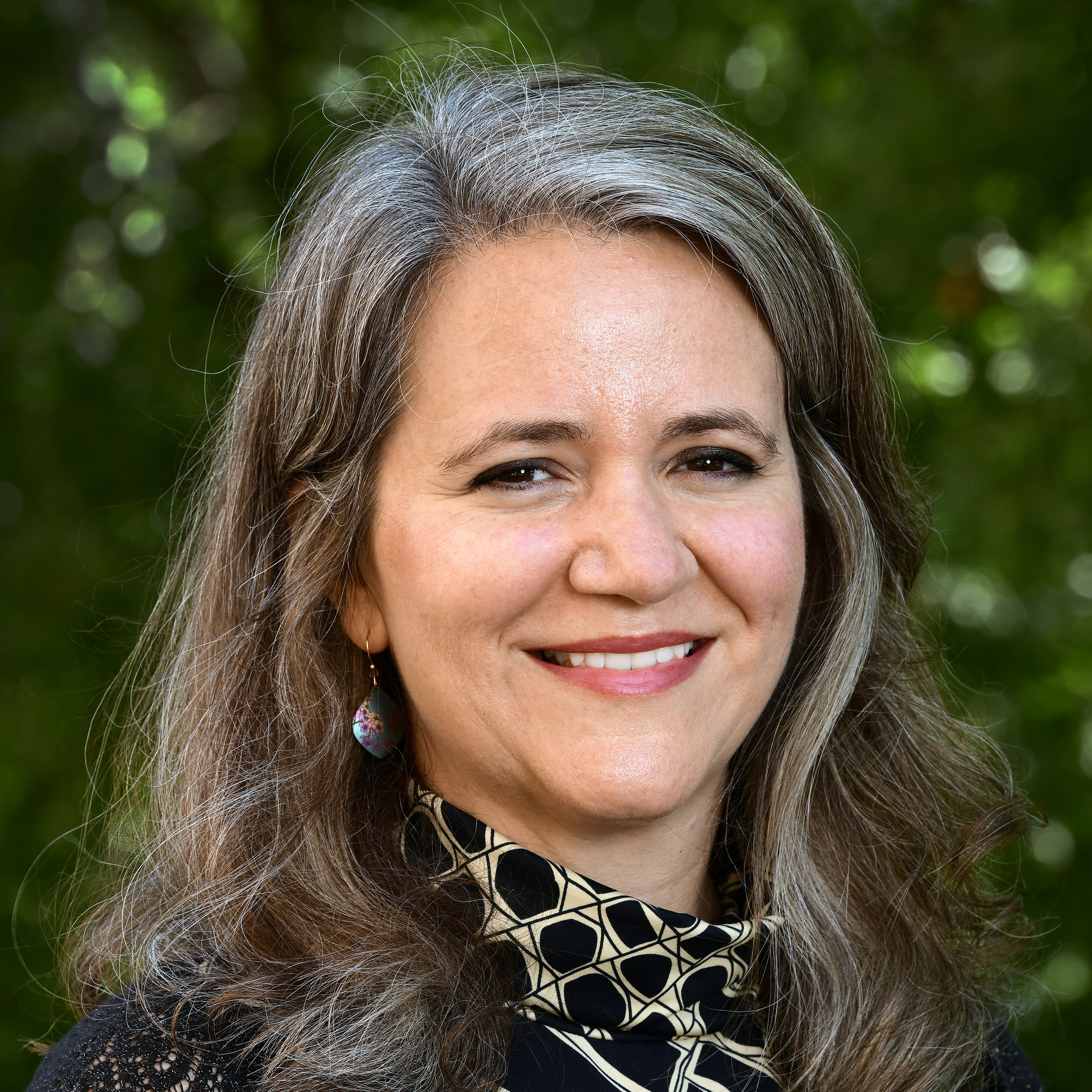
In 2022, Dr. Tammy Collins joined the Burroughs Wellcome Fund (BWF), a nonprofit philanthropic organization whose mission is to improve human health. At BWF, Dr. Collins serves as a Program Officer where she directs the Career Awards at the Scientific Interface (CASI) program and the Innovations in Regulatory Science Awards (IRSA). She serves on the US National Academies of Science, Engineering, and Medicine’s (NASEM) Forum on Drug Discovery, Development, & Translation as well as NASEM’s Forum on Regenerative Medicine. Prio read more...
Innovation in Regulatory Science Awards at Burroughs Wellcome Fund —Preview of the Latest Technologies and Progress Towards Equitable Clinical Outcomes
The process of translating biomedical discoveries into new therapies has become increasingly complex in light of evolving science and technology, and requires that the science of regulation keep up with the advances in biomedical science and technology. Furthermore, there is heightened attention on the health disparities faced by minoritized individuals. These disparities could be partly addressed by attending to the role of regulatory science in ensuring that the safety and efficacy of new (and old) therapeutics and technologies are examined in individuals from diverse ancestral backgrounds, with the goal of advancin read more...
Francesco Cubadda, Ph.D.
Senior Scientist and Team Leader
Istituto Superiore di Sanità - Italian National Institute of Health (ISS, Italy)

Dr. Cubadda is Senior Scientist and Team Leader at the Italian National Institute of Health with expertise in analytical sciences, exposure assessment and toxicology. He leads a group with a long track record in research on analytical determination and toxicology of nanomaterials as well as risk assessment of nanotechnology applications. Current interest is mainly in the area of NAMs in nanotoxicology, in which he coordinates international projects (NANOCELLUP, NAMS4NANO Lot 3). Expert in food safety risk assessment, in both t read more...
EFSA NAMs Case Study on Nanocellulose: the NANOCELLUP Project
Nanocellulose (NC) is an emerging material in the food sector with several prospective applications. Three main types of NC exists, i.e. bacterial NC (BNC), nanofibrillated cellulose (NFC), and cellulose nanocrystals (CNC). The biological sources and processing conditions affect several physicochemical parameters of NC. CNC usually consists of rod-shaped crystals. NFC consists of fibrils composed of fibres with a length up to 2-3 μm; nanofibers are even longer in BNC and organized in networks. For all the NC types, the diameter is very small, as low as 5-10 nm. A NAM-based IATA for addressing data gaps in the assessmen read more...
Jean Lou Dorne, Ph.D.
Senior Scientific Officer in Toxicology
European Food Safety Authority (EFSA)

Dr Jean Lou Dorne has been working in EFSA as a Senior Scientific Officer in Toxicology since 2006 and is currently working in the preparedness team of the Methodological and Scientific Support Unit. Previously, he spent 9 years at the University of Southampton between a PhD and 5 years of postdoctoral research UK on “human variability in kinetics and metabolism and refinement of uncertainty factors for chemical risk assessment”. His work focuses on NAMs in chemical risk assessment, toxicology, ecotoxicology including developm read more...
TK Plate, an open access platform for TK and TD modelling
New approach methodologies (NAMs) include in vitro, in silico and in chemico methods to support the move towards the integration of mechanism-based understanding of chemical toxicity and the reduction of animal testing in chemical risk assessment. Amongst such NAM-based approaches, biologically-based models are increasingly applied and allow the derivation of quantitative metrics related to toxicokinetic and toxicodynamic processes for hazard and risk characterisation. Relevant biologically-based models include physiologically-based kinetic (PBK) models and toxicokinetic-toxicodynamic (TKTD) models such as the standard read more...
Prof. Pierre Eftekhari, Ph.D.
Founder of Inoviem Scientific

Clinical physiologist and PhD in biology with 23 years of experience in drug discovery and drug development. Founder of Inoviem Scientific highly focused on personalised medicine using proprietary technologies and Artificial Intelligence platform to help pharma and biotech companies in develop of their compounds from early discovery to patient. Professor in experimental medicine at University hospital KSMA in Bishkek in connection to Germane higher education.
Hong Fang, Ph.D.
Senior Health Information Scientist
National Center for Toxicological Research (NCTR)
U.S. Food and Drug Administration (FDA)

Dr. Hong Fang is a highly accomplished Senior Health Information Scientist at the US FDA, bringing over 20 years of experience in computational science, data science, chemoinformatics, toxicoinformatics, and bioinformatics to her role. At the FDA, Dr. Fang spearheads bioinformatics research and is responsible for the development of tools that support FDA's health informatics initiatives. A comprehensive list of the currently available software tools and informatics systems can be found on NCTR/FDA webpage: https://www.fda.gov/ read more...
FDALabel: A tool to facilitate regulatory application of drug labeling at FDA
FDALabel is a powerful database tool developed by NCTR/FDA to facilitate the regulatory application of drug labeling documents at the FDA. This tool manages a comprehensive collection of approximately 145,000 FDA SPL (Structured Product Labeling), which are electronic digital labeling containing crucial scientific information for the safe and effective use of FDA-regulated products. With web-based application and intuitive search functions, FDALabel enables users to perform full text searches or customize queries by combining labeling sections and subsections, document types, and more. The tool, hosted on Amazon Web Se read more...
Suzanne Fitzpatrick, Ph.D.
Senior Advisor for Toxicology
DABT,ERT
U.S. Food and Drug Administration (FDA)

Dr. Suzanne Fitzpatrick is the Senior Advisor for Toxicology at the US Food and Drug Administration Foods Program. She is a board-certified toxicologist in the US and in Europe. Dr. Fitzpatrick chairs the FDA’s Alternative Methods Work Group that is currently focusing on in vitro Microphysiological Systems. Dr. Fitzpatrick helped develop the FDA DARPA NCATS program on Organs on a Chip and continues to work and give presentations on this evolving area. Dr. Fitzpatrick was the chair of the FDA Predictive Toxicology Roadmap Com read more...
Advancing Regulatory Science Through Innovation- In Vitro Microphysiological Systems
Investments in regulatory science can enable us to better protect and promote the health of people throughout the world. Moving from current to newer methods is challenging and we need to work together to define needed pathways and catalyze change. The US FDA helped develop the MPS program with DARPA and NCATS and clearly saw that researchers and regulators working together can advance new innovative science at a more rapid speed. Additionally FDA committed to introducing new technologies to regulator before they appear in a regulatory application. Roadblocks to change can only be overcome through collaboration bet read more...
Xingchao Geng, Ph.D.
Director of National Center for Safety Evaluation of Drugs (NCSED)
National institutes for Food and Drug Control (NIFDC, CN)

Dr. Xingchao Geng is the director of National Center for Safety Evaluation of Drugs (NCSED), National institutes for Food and Drug Control (NIFDC), China. He received the bachelor and master degree from Peking University Health Science Center (Beijing, China) and Ph.D in pharmacology at The Fourth Military Medical University in China. He joined the National Center for Safety Evaluation of Drugs (NCSED), National Institutes for Food and Drug Control (NIFDC) for Toxicological Research to develop toxicological methods for safety read more...
Development status and supervision of oragnoids and organ-on-chip in China
With the continuous progress of science and technology, people pay more and more attention to various emerging technologies in the field of life science. Among them, organoids and organ-on-a-chip are a cutting-edge technology that has attracted much attention. These miniaturized devices can simulate real human tissue or a specific part of the body, and can perform a variety of functional tests and analyses. At present, many companies in the pharmaceutical field have begun to use these advanced tools for new drug research and development, clinical diagnosis and other applications. However, the safety and effectiveness read more...
Justin M Gorham, Ph.D.
Group Leader and Research Chemist
National Institute of Standards and Technology (NIST, US)

Justin M Gorham is a Group Leader and research chemist in the Nanomaterials Research Group at NIST. Dr. Gorham received his bachelor’s degree in chemistry from Bates College in Lewiston, Maine in 2003 and his PHD in surface chemistry from the Johns Hopkins University in 2008. He was awarded a position as an NRC postdoctoral fellow at the National Institute of Standards and Technology in 2009 to study environmentally induced transformations to the surface chemistry and stability of nanomaterials. He became a research chemist read more...
NIST Overview: Methods and Strategies for Characterizing Microplastics and Nanoplastics in Complex Matrices
A brief overview will be given on some of the ongoing research activities surrounding method development for characterizing microplastics and nanoplastics at NIST. Discussions may include an overview of some fundamental research to more applied systems that probe both primary and secondary plastic particles. Matrices may include laboratory-controlled models all of the way to real environmental samples marine setting and recycling facilities.
Todd Gouin, Ph.D.
Author/ Independent Scientist
TG Environmental Research (UK)

Dr. Gouin received a PhD specializing in the field of environmental chemistry from Trent University, in Canada, through the Watersheds Ecosystems Graduate Programme in June 2006. Following his graduate studies, Dr. Gouin, has obtained both experimental and modelling experience in assessing diverse chemical exposures. More recently, he was employed for eight years by Unilever, where he was involved in the development and application of tools aimed at both screening and prioritization of chemicals and higher-tier risk assessme read more...
Presentation on the WHO report ‘Dietary and inhalation exposure to nano- and microplastic particles and potential implications for human health’
The number of reports of the presence of microplastic particles (MP) in the environment has increased significantly during the past few years. MP have been detected in air, water, soil, food and beverages, indicating that exposure of humans to these particles is ubiquitous. In 2019, the World Health Organization (WHO) commissioned a report to evaluate the evidence for risks to human health associated with exposure to nano- and microplastic particles (NMP) in drinking-water. The report was based on literature reviews of studies published up to December 2021 in which original data on the occurrence of NMP in air, water, read more...
Claudius Griesinger, Ph.D.
Member of the Leadership Team of the JRC’s project portfolio on “Innovation in Life and Health Sciences
European Commission Joint Research Centre (EC, JRC)

Claudius Griesinger has been working for the European Commission’s Joint Research Centre (JRC) since 2006. He worked on biomedical testing methods, contributing to OECD guidelines and coordinating expert advice and stakeholder dialogue. From 2015 to 2022 he was responsible for the JRC’s contribution to the implementation of the EU’s medical devices/in vitro diagnostics regulations, focusing on signal detection, emerging technologies including artificial intelligence (AI) and setting up expert panels on high-risk devices, now m read more...
An evidence pathway for trustworthy AI innovations: bridging the gap between developer and user communities
'Artificial intelligence’ will fundamentally transform the health domain within the near future. This is not surprising given the strong data dependence of the health sector, for example to understand biomedical pathogenesis pathways or when developing novel therapies development or for managing complex decision flows in daily clinical practice, ideally tailored to individual, personalized needs. Consequently, healthcare and medicine will and are already profiting from AI models for various applications, such as clinical diagnosis, clinical (pathway) decision-making, biomedical research including development of novel v read more...
Andrea Haase, Ph.D.
Head of the Unit “Fibre and Nanoparticle Toxicology”
& Deputy Department Head of the Department "Chemical and Product Safety”
German Federal Institute for Risk Assessment (BfR, DE)

Andrea Haase studied biochemistry at the University of Tübingen and obtained a PhD from the University of Heidelberg. In addition she finished a postgraduate study in Toxicology at the University of Leipzig and completed her habilitation in pharmacology and toxicology at the Freie Universität Berlin. Since 2008 she is working at the German Federal Institute for Risk Assessment (BfR) in Berlin, where she is the head of the unit “Fibre and Nanoparticle Toxicology” and the deputy department head of the department ""Chemical and P read more...
EFSA NAMs4NANO Project
New Approach Methodologies (NAMs) are usually understood in a broad context to cover in silico, in chemico and in vitro methods including new tools such as high-throughput screening or high-content methods like the various omics approaches. NAMs offer many advantages, e.g. allowing for higher testing efficiency and being focused on humans. Most importantly, they may provide important insights into underlying toxicity mechanisms and can therefore significantly advance hazard and risk assessment in the future. For nanomaterials (NMs) NAMs are regarded in particular useful to cope with the large number of variants. Howeve read more...
Thomas Hartung, M.D./Ph.D.
Chair for Evidence-based Toxicology
Center for Alternatives to Animal Testing (CAAT)
Johns Hopkins Bloomberg School of Public Health
Maryland, USA

Thomas Hartung, MD PhD, is the Doerenkamp-Zbinden-Chair for Evidence-based Toxicology in the Department of Environmental Health and Engineering at Johns Hopkins Bloomberg School of Public Health, Baltimore, with a joint appointment at the Whiting School of Engineering. He also holds a joint appointment for Molecular Microbiology and Immunology at the Bloomberg School. He is adjunct affiliate professor at Georgetown University, Washington D.C.. In addition, he holds a joint appointment as Professor for Pharmacology and Toxicolo read more...
ToxAIcology – the Future of Toxicology is AI
The 2007 NAS report on Toxicity Testing for the 21st Century was a watershed moment for toxicology. Since then, the discussion is no longer whether to change but how and how fast? With knowledge in the life sciences doubling every 3-4 years, we now have sixteen times more understanding and actually a number of disruptive technologies have evolved, which were not anticipated in the report, such as Microphysiological Systems (MPS) and Machine Learning, aka Artificial Intelligence (AI). In order to embrace these developments and move toxicology to a more wholistic and integrated paradigm, the Basic Research Office of the read more...
Yoko Hirabayashi, Ph.D.
Director of the Center for Biological Safety Research (CBSR)
National Institute of Health Sciences (NIHS, JP)

As Director of the Center for Biological Safety Research (CBSR) at the NIHS, Dr. Hirabayashi oversees all testing and research activities related to the comprehensive safety evaluation chemicals, foods, and drugs using biological resources (laboratory animals, cells, etc.). She also chairs the Steering Committee of the Japan Center for Alternative Test Methods and Validation (JaCVAM), a member of the International Cooperation on Alternative Test Methods (ICATM), and is working to implement appropriate animal experiments and pr read more...
Activities of the Japanese Center for the Validation of Alternative Methods (JaCVAM), NIHS: Development of new toxicity tests using NAM and their use in regulations
JaCVAM is one of the facilities of the Center for Biological Safety and Research (CBSR), NIHS, which cooperates with various related facilities within and outside Japan to conduct activities to promote the use of alternative methods for animal experiments. With the support of the International Cooperation on Alternative Test Methods (ICATM), JaCVAM has participated in more than 20 validation studies and contributed to the development of more than 15 test method guidelines (TGs) developed by the Japanese in the field of human health in the OECD. 75 TGs in this field have been discussed at the OECD and JaCVAM has partici read more...
Masamitsu Honma, Ph.D.
Director of National Institute of Health Sciences (NIHS, JP)

Dr. Masamitsu Homma has been Director of the National Institute of Health Sciences (NIHS) in Japan since April 2023. He received his PhD in molecular genetics from the University of Tokyo. After completing his postdoctoral fellowship at the Harvard School of Public Health, he began his research career at the NIHS in the field of genetic toxicology. He has published over 250 papers on DNA repair, mutagenesis, genotoxicity testing, and QSAR models. Dr. Homma has also held numerous regulatory positions in Japan and international read more...
NIHS 150th Anniversary and Regulatory Sciences
The National Institute of Health Sciences (NIHS), which will celebrate its 150th anniversary in 2024, is the longest-running national research institute in Japan. When founded in the beginning of Meiji era at late 19th century, the NIHS was mainly responsible for quality inspection of pharmaceuticals imported from overseas. Today, it covers not only pharmaceuticals, but also numerous chemicals present in our living environments, such as medical equipment, regenerative medicine products, daily commodities including cosmetics and detergents, foodstuffs, food additives, residual pesticides, and plastics used in food conta read more...
Kristi Muldoon-Jacobs, Ph.D.
Acting Director of the Office of Food Additive Safety (OFAS)
U.S. Food and Drug Administration (FDA)

Dr. Kristi Muldoon-Jacobs is the acting director of the Office of Food Additive Safety (OFAS). In her role, she directs the office responsible for overseeing the safety of ingredients in food and substances that come into contact with food through packaging and manufacturing. What drives Dr. Muldoon-Jacobs, a toxicologist and mother, are the safety and nutrition of food. She is equally passionate about the FDA’s mission as she is about informing consumers about food science and safety. She wants to help consumers understand th read more...
Technology for future smart food
TBC
Ákos Bernard Jóźwiak, Ph.D.
Head of Department of Digital Food Science at the Institute of Food Chain Science
University of Veterinary Medicine Budapest (HU)

Ákos Jóźwiak is the head of Department of Digital Food Science at the Institute of Food Chain Science, University of Veterinary Medicine Budapest. Before, he worked for the National Food Chain Safety Office (NÉBIH) and its predecessors for 15 years in various positions. He is a member of the European Food Safety Authority (EFSA) Advisory Forum and the EFSA Emerging Risk Exchange Network. He also chairs the EFSA Advisory Group on Data. In his research activities, he focuses on developing and applying new data analytical metho read more...
Prerequisites for Data analytics and AI
Data analytics need a few prerequisites before doing the actual analytical work. We need to precisely define the research question, we need data models, data, infrastructure/architecture, analysis tools, people, and many more. The EFSA Advisory Group on Data is continuously discussing the current status, the pain points, the needs and possible solutions in the food safety domain. The presentation will outline the most important outcomes of these discussions, mainly focusing on (missing) data, standards and ontologies.
Masato Kiyoshi, Ph.D.
National Institute of Health Sciences (NIHS, JP)
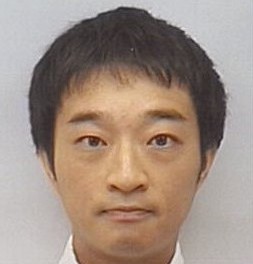
I completed my undergraduate degree in pharmaceutical science at Kyushu University, Fukuoka in Japan. Then I studied antibody engineering, protein science, protein structure, and immunology for my doctoral work at The University of Tokyo in Japan. Currently, my research field is molecular characteristics of therapeutic antibodies, such as structure, function, therapeutic potency, and stability.
Structural analysis of therapeutic antibodies using CRYO EM
Currently, more than 100 antibody drugs are approved for the treatment of numerous diseases, and the number is growing rapidly. In addition, with the development of biotechnology, antibody drugs have emerged in various molecular formats, such as antibody-drug conjugates (ADCs), domain antibodies, and dual-specificity antibodies. The evaluation of molecular characteristics such as structure, biological activity, Fc glycosylation, and stability is very important. Especially in these next-generation, and engineered therapeutic antibody drugs, the molecular characteristics become complex and variable. Here, we discuss the read more...
Nicole Kleinstreuer, Ph.D.
Director
NTP Interagency Center for the Evaluation of Alternative Toxicological Methods (NICEATM, US)
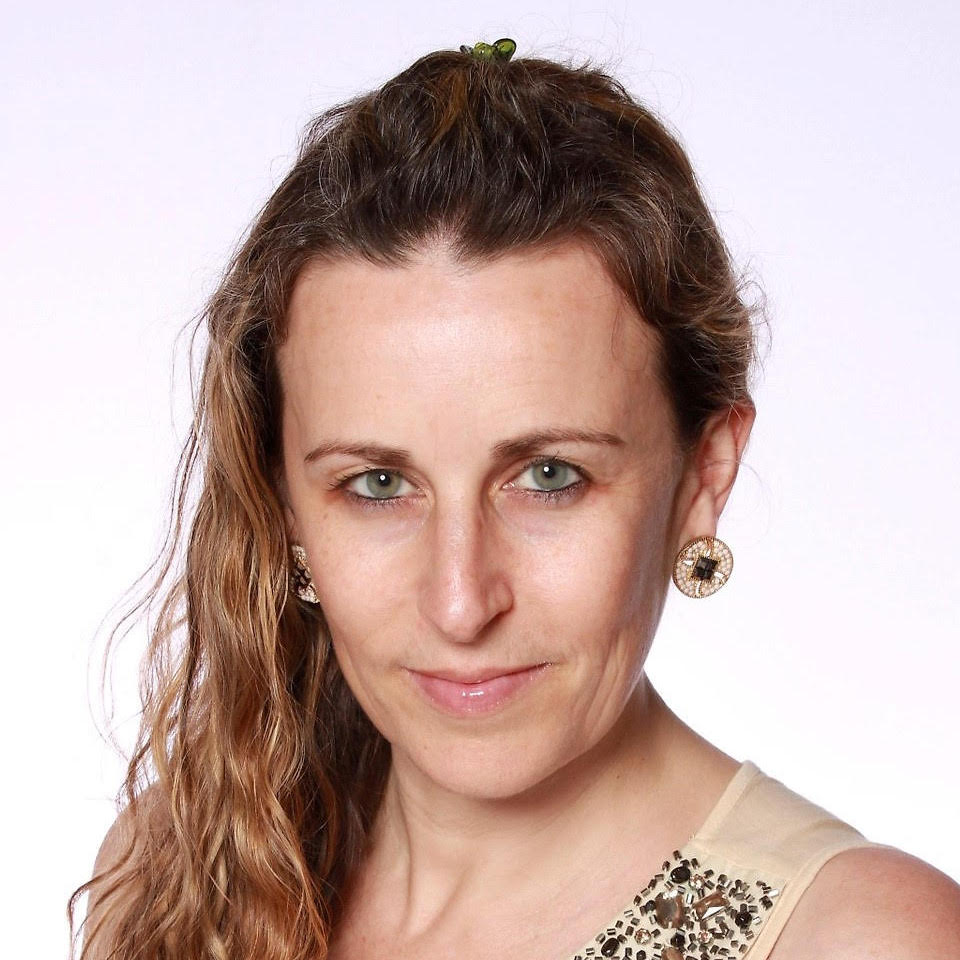
Dr. Nicole Kleinstreuer is the director of the NTP Interagency Center for the Evaluation of Alternative Toxicological Methods (NICEATM), which is the US federal resource for alternatives to animal testing, and the executive director of the congressionally mandated Interagency Coordinating Committee on the Validation of Alternative Methods (ICCVAM). Her work is centered on domestic and international efforts to develop novel testing, modeling, and analysis strategies that provide more rapid, mechanistic, and human-relevant predi read more...
Of Mice and Machines: Augmented Intelligence for Improving Chemical Safety Assessements
The field of computational toxicology (CompTox) has grown rapidly over the last decade, with the maturation of cognitive algorithmic tools and software to mine, process, and model data to provide reliable and robust predictions of chemical property, activity, and toxicity endpoints. Expanding and investing in computational capabilities is of the utmost importance to provide the enabling structure upon which the next scientific revolution in toxicology is based. Augmented intelligence approaches use big data and computational tools to apply machine learning, natural language processing, mathematical modeling, and data a read more...
Anna Lanzoni, Ph.D.
Senior Scientific Officer & Toxicologist
European Food Safety Authority (EFSA, Italy)

Anna Lanzoni is a Senior Scientific Officer, Toxicologist at the European Food Safety Authority (EFSA; Italy). Currently she in involved in the peer review of pesticides at the PREV Unit, while from 2013 to 2021 she was involved in the risk assessment of genetically modified organisms at the GMO Unit. Previously she worked for 20 years as toxicological pathologist in a pharmaceutical company (GSK), involved with preclinical regulatory studies and in interdisciplinary project teams for the development of potential new medicine read more...
Emerging technologies for protein safety
Exposure to certain proteins via food or other routes (dermal, inhalatory) can cause adverse effects in humans, including toxicity and immune-mediated reactions (e.g. allergies, celiac disease). In Europe the safety of proteins or protein-based substances is assessed before market authorisation in various areas, such as GMO, enzymes and novel foods, according to sectorial regulations. Worth to mention the EU Green Deal initiative “Farm to Fork”, that promotes the use of new proteins alternative to traditional animal proteins, or of biological alternatives to chemical pesticides. EFSA has undertaken some initiatives to read more...
Nicolas Löffler-Perez, Ph.D.
Data Scientist
Swissmedic (Swiss Agency for Therapeutic Products)
Bern, Switzerland

Dr. Nicolas Löffler-Perez is a Data Scientist at Swissmedic, the Swiss Agency for therapeutic products. After obtaining his Ph.D at The Johns Hopkins University, he moved to Switzerland to work on Clinical Machine Leaning in the University Hospital of Zurich and the University of Zurich where he developed a multimodal model for comprehensive analysis of images and reports in the hospital as well as optimization algorithms among other projects. He currently works with the Swissmedic 4.0 Team as the technical lead in multiple AI read more...
AskYourDocs: harnessing the power of LLMs for a working cross-agency prototype on Information Retrieval from PDFs
In June 2023 multiple national agencies came together in Bern, Switzerland in order to analyze through a workshop the relevance of Large Language Models to governmental agencies in the context of healthcare. In this workshop, the basis for a cross-agency effort was laid, kickstarting the development of a working prototype of an application performing a well defined task: Information retrieval from PDFs through semantic search. In this talk we will present progress and achieved milestones on this prototype as well as its relevance within our particular case of Swissmedic.
Annamalai Manickavasagan, Ph.D.
Associate Professor at the School of Engineering
University of Guelph, Canada
Bioimaging Research Solutions (CA)

Dr. Annamalai Manickavasagan (Manick) received PhD in Biosystems Engineering from the University of Manitoba, Canada. Currently, he is an Associate Professor at the School of Engineering, University of Guelph, Canada. He has published more than 100 research papers in journals and edited 10 books. Manick’s research is focused on improving the availability of safe and healthy food. He is exploring several techniques in Artificial Intelligence, including: a non-destructive testing system development for biological applicati read more...
Artificial intelligence (AI) based inspection system for lymph nodes
The feasibility for developing image-based automated lymph node inspection system was carried out in this preliminary research. Ten lymph nodes from each of the healthy and infected bovines were imaged using RGB camera, NIR camera, thermal camera, x-ray system and ultrasound scanner. The classification models were developed using deep learning-based convolution neural network (CNN) and support vector machines (SVM). Although, all models showed greater accuracy for lymph node inspection, X-ray imaging system has the potential to be implemented for real time inspection of lymph node in slaughterhouses
Manuela Mura, Ph.D.
Scientific Officer
European Medicines Agency (EMA)

Manuela works as a scientific officer at EMA since 2010 with focus on human vaccines particularly in the context of public health emergencies. Her background is in veterinary medicine with a PhD in molecular biology, and 6 years work experience as a virologist in various Universities.
Emerging technologies in vaccines
Brief overview of emerging technologies in vaccines including mRNA vaccines for human use, and aspects of regulatory approval in the EU.
Yusuke Okubo, Ph.D.
Senior Researcher
National Institute of Health Sciences (NIHS, JP)

Yusuke Okubo, a Senior Researcher at Japan's National Institute of Health Sciences, specializes in developmental biology and toxicology. Actively promoting the principles of the 3Rs (Replacement, Reduction, and Refinement), he is applying his expertise in developmental biology to the development of a new in vitro developmental toxicity testing method. In addition, he has developed a wearable multimodal vital measurement device for rats. This device is designed to gather more comprehensive data from each individual animal, an e read more...
Evaluation for developmental toxicity using human iPS cells
Developmental toxicity shows a high degree of species specificity, necessitating the use of multiple animal species for comprehensive testing in current methods. This reliance underscores the urgent need for more human-relevant, precise, and high-throughput approaches to better predict human developmental toxicity. Recognizing that embryo-fetal development is tightly regulated by intricate signal transduction interactions, we hypothesized that developmental toxicity could be induced through disruptions to these interactions, regardless of the specific chemical target. Diverging from existing biomarker-based evaluations read more...
Luis Pinheiro, Ph.D.
Senior Epidemiology Expert
EMA, NL
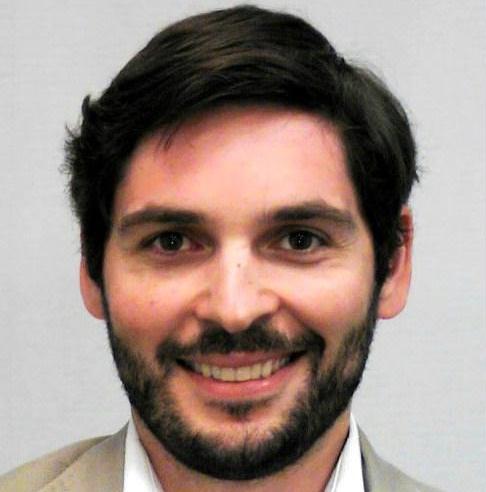
Luis Pinheiro is a Senior Epidemiology Expert at the European Medicines Agency (EMA), in the Data Analytics Workstream of the Data Analytics and Methods Taskforce. He is responsible for designing and running real-world data analytics studies and is tasked with methods development and learning within the team. Luis is also a co-chair of the AI Technical Group at EMA. Before moving to the Data Analytics Workstream, Luis worked eight years in drug safety at EMA. Prior to joining the EMA, he was the Head of the Signal Detection U read more...
Andrea Valsesia, Ph.D.
Scientific Officer
European Commission Joint Research Centre (EC JRC)
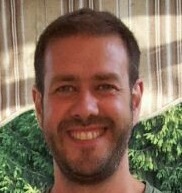
Andrea Valsesia has a PhD in Physics on Nanofabrication of surfaces for biological application. He has experience in the field of nano-micro fabrication, thin films deposition, surface analysis and integration of devices, development of high-tech laboratory equipment, characterization of engineered nanomaterials. His research has been always oriented toward development of methods and experimental tools to support EU regulation in particular in the nanotechnology domain.
Proxy measurands for nanoplastics – Should the development of analytical methods go in this direction?
It is not easy to be a Nanoplastic particle! You are mentioned everywhere, you are supposed to be present in various environmental compartments and even in living tissue... but it is still difficult to find you...reasons? lack of standards, lack of resolution, lack of suitable methods. Conventional measurands that could identify nanoplastics include chemical fingerprint of the polymers, registered using vibrational spectroscopies or mass spectrometry. These methods (including their databases of spectra) were developed for bulk and pure polymers and, adopted for microplastics but they not necessarily apply to nanometric read more...
Prof. Bob Van der Water, Ph.D.
Professor in Drug Safety Sciences
Chair of the Division of Drug Discovery and Safety
Leiden Academic Center for Drug Research
University of Leiden (NL)
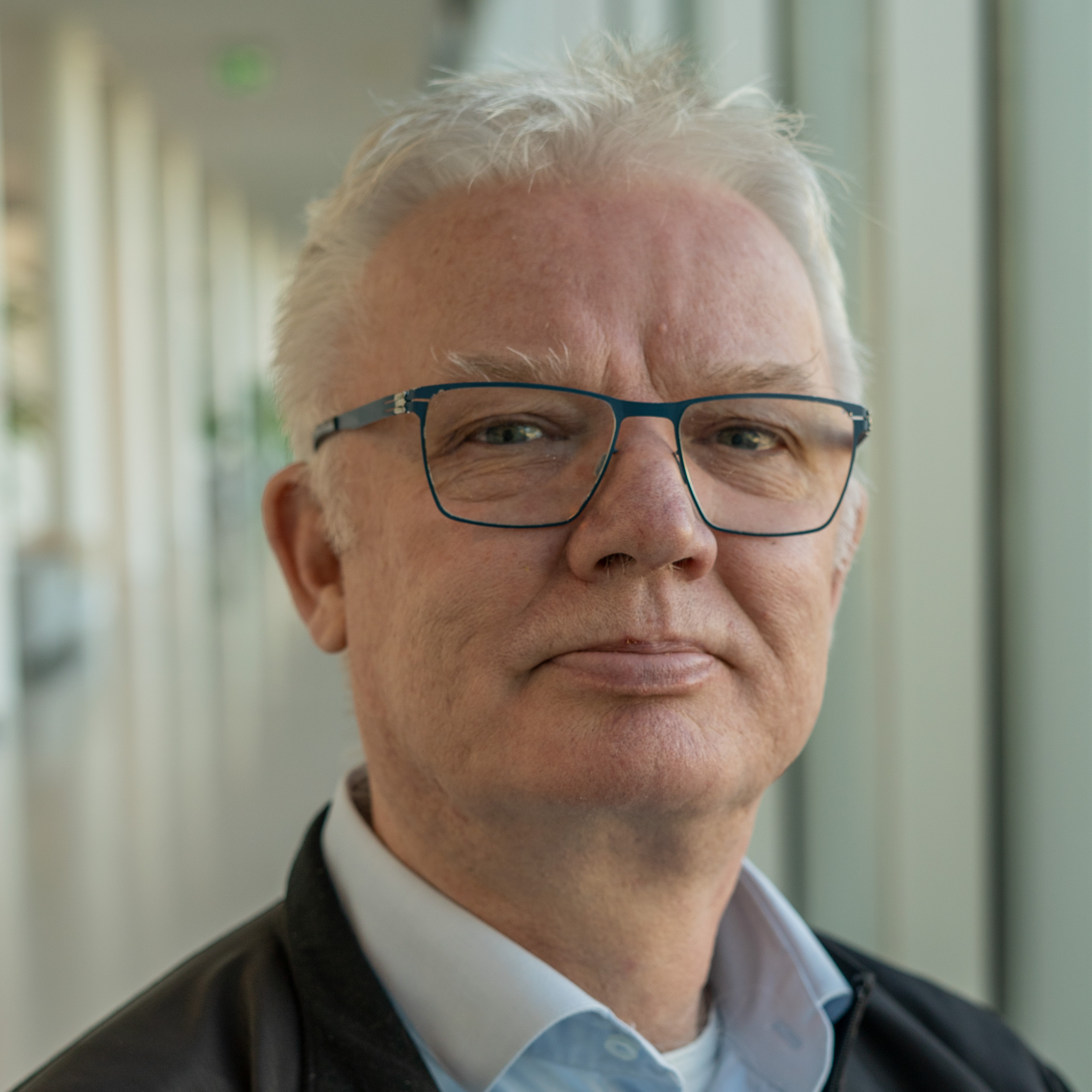
Prof. Bob van de Water is professor in Drug Safety Sciences and chair of the division of Drug Discovery and Safety at the Leiden Academic Center for Drug Research. He has longstanding experience in mechanisms of toxicity with a focus on liver and kidney. Functional genomics and transcriptomics approaches are applied to identify novel mechanisms that contribute to AOP development. He is currently the coordinator of the Horizon2020 RISK-HUNT3R project, part of the ASPIS cluster, and participates in the Horizon Europe PARC progra read more...
Toxicogenomics to support scientific underpinning of toxicodynamics interindividual variability.
Understanding the variance across the human population with respect to toxicodynamic responses after exposure to chemicals is essential to define safety factors for risk assessment to protect the entire population. Activation of cellular stress response pathways are early AOP key events of chemical-induced toxicity and would elucidate the estimation of population variability of toxicodynamics responses. We aimed to map the inter-individual variability in cellular stress response activation in a large panel of primary human hepatocyte (PHH) donors to quantify toxicodynamic variability to derive safety uncertainty factor read more...
Thorsten Vetter, Ph.D.
Clinical Pharmacologist & Senior Scientific Officer
Scientific Advice Office
European Medicines Agency (EMA, Amsterdam)

Clinical Pharmacologist, Senior Scientific Officer, Scientific Advice Office, European Medicines Agency, Amsterdam
EMA Qualification of Novel Methodologies
The EMA Qualification of Novel Methodologies platform - qualifying innovative tools for evidence generation to support benefit/risk assessment of medicinal products.
Prof. Mathieu Vinken, Ph.D.
Professor
Vrije Universiteit Brussel (VUB, BE)

Mathieu Vinken is a full professor affiliated with the Vrije Universiteit Brussel-Belgium. He has a background in pharmaceutical sciences (Pharm.D.), holds a doctoral degree in experimental in vitro toxicology (Ph.D.), is a European registered toxicologist (E.R.T.) and a trained chemical risk assessor. His research focus is situated in the fields of experimental hepatology (connexin and pannexin channels as drug targets and biomarkers for the therapy and diagnosis of liver disease), in vitro toxicology (mechanistic modelling o read more...
The European ONTOX project: goals and first results
The 3Rs concept, calling for replacement, reduction and refinement of animal experimentation, is receiving increasing attention around the world, and has found its way to legislation, in particular in the European Union. This is aligned by continuing high-level efforts of the European Commission to support development and implementation of 3Rs methods. In this respect, the European project called “ONTOX: ontology-driven and artificial intelligence-based repeated dose toxicity testing of chemicals for next generation risk assessment” was initiated in 2021 with the goal to provide a functional and sustainable solution fo read more...
Prof. Maurice Whelan, Ph.D.
Deputy Director for Health and Food and Head of Systems Toxicology Unit
European Commission, Joint Research Centre (JRC)

Prof. Maurice Whelan is Deputy Director of the Directorate for Health and Food and head of the Systems Toxicology Unit at the European Commission's Joint Research Centre (JRC) based in Ispra, Italy. He also heads the JRC's EU Reference Laboratory for alternatives to animal testing (EURL ECVAM). Maurice is the EU co-chair of the OECD Advisory Group on Emerging Science for Chemicals Assessment (ESCA); a member of the Steering Committee of the European Partnership for Alternative Approaches to Animal Testing (EPAA); and chair of read more...
Bridging scientific data with evidence needs for regulatory safety assessment
TBC
Joshua Xu, Ph.D.
Branch Chief for for Research-to-Review and Return (R2R) at the Division of Bioinformatics and Biostatistics (DBB)
National Center for Toxicological Research (NCTR)
U.S. Food and Drug Administration (FDA)

Dr. Joshua Xu received his Ph.D. degree in electrical engineering from Texas A&M University with research in medical image analysis. Currently he is the Branch Chief for Research-to-Review and Return (R2R) at the Division of Bioinformatics and Biostatistics of FDA's National Center for Toxicological Research (NCTR). He specializes in bioinformatics, text mining, image analysis, artificial intelligence, and informatics system development. He leads the Division’s efforts in developing regulatory informatics applications and syst read more...
Inter-agency LLM task force: a progress update and beyond
As the epitome of artificial intelligence, ChatGPT like large language models (LLMs) have stirred tremendous excitements and debates all over the world. With their abilities to reason and process information in many natural languages, these LLMs offer almost unlimited opportunities for regulatory applications. To accelerate and safeguard the adoption of LLMs in our regulatory review of drug and food products, an Inter-agency LLM Task Force has been established within GCRSR. This talk will provide some background information about LLMs and a progress report for the Task Force. Visions, challenges, use cases, and collabo read more...
Takashi Yamada, Ph.D.
Section Chief at Division of Risk Assessment
National Institute of Health Sciences (NIHS, JP)

Dr. Takashi Yamada is a section chief at Division of Risk Assessment, National Institute of Health Sciences (NIHS). He is mainly engaged in research on the development of toxicity databases and evaluation of in silico approaches for chemical risk assessment including quantitative structure-activity relationships (QSAR) and read-across. He is an expert member of FSCJ and Chemical Management of Control Law. He also works as a member for several programs of in silico approaches for chemical hazard assessment at Organisation for E read more...
Case studies on refining risk assessment of food-related substances with NAMs
The Food Safety Commission of Japan (FSCJ) performs science-based assessment of food safety risks to human health. FSCJ also sponsors the research and survey for accumulating the scientific findings and knowledge, and developing and improving risk assessment methodologies. Here, we will introduce a case study of risk assessment of a food ingredient by combining in silico methods, which were supported by the research and survey program by FSCJ. Hepatotoxicity associated with food-derived coumarin occasionally occurs in humans. Given the need for elaborate risk assessment of coumarin, we attempted to assess it using the read more...
Daiju Yamazaki, Ph.D.
Section Chief of the Division of Pharmacology
National Institute of Health Sciences (NIHS, JP)

Dr. Daiju Yamazaki is the Section Chief of the Division of Pharmacology at the National Institute of Health Sciences. He had been involved in developing of a proarrhythmic risk assessment using human iPS cardiomyocytes (hiPS-CMs). He had also collaborated with Comprehensive in vitro Proarrhythmia Assay (CiPA). Subsequently, he acquired the method for constructing three-dimensional cardiac tissues, one of the microphysiological systems (MPS) from hiPS-CMs at the University of Washington for the in vitro evaluation of congestive read more...
Toward social implementation and regulatory acceptance of MPS
MPS (microphysiological systems) are attracting attention worldwide as useful tools for emerging in vitro assessments, with the aim of improving human extrapolation, replacing animal experiments, and reducing drug development costs. Although there is no universally accepted definition of MPS, the minimum consensus is that it is a microenvironmental culture system that mimics the biological environment. This includes a wide range of systems, from complex cultures with three-dimensional (3D) cultures such as spheroids and flow channels to organs-on-a-chip that connect multiple organs and/or cells. We are developing a con read more...
Satoshi Yasuda, Ph.D.
Chief at Division of Cell-Based Therapeutic Products
National Institute of Health Sciences (NIHS, JP)

Satoshi YASUDA, PhD, is currently Chief at Division of Cell-Based Therapeutic Products, National Institute of Health Sciences (NIHS). He is also a visiting associate professor at Nagoya City University. He received his PhD in Pharmaceutical Sciences from Nagoya City University. In his research career, he worked on biochemistry and cell biology of lipids as a postdoctoral researcher at National Institute of Infectious Diseases and University of Tennessee Health Science Center. After continuing his area of interest as an instruc read more...
Safety assessment of cell-based therapeutic products derived from iPS cells
Pluripotent stem cells (PSCs) such as induced pluripotent stem cells (iPSCs) and embryonic stem cells are promising raw materials for cell-based therapeutic products (CTPs) for the purpose of regenerative medicine and cell therapy because PSCs have the ability to self-renew and to differentiate into various types of cells. The products of their differentiated cells have been actively developed both in Japan and abroad. However, since PSCs used as raw materials for products intrinsically possess the ability to form teratomas, the possibility of tumor formation with the final products is concerned due to the mixture of r read more...
Dingyi Yu, Ph.D.
Chemical Specialist Team Lead of National Centre for Food Science
Singapore Food Agency (SFA, SG)

Dr. Yu obtained his PhD in Organic Chemistry & Material Science from Jilin University, China, in 2008, He later joined Harvard University in USA as a Postdoctoral Research Associate (2008-2010). In 2010, he joined the Institute of Bioengineering and nanotechnology (IBN) in Singapore as a Research Scientist & Project Leader (2010-2016) leading a research group to develop new organo/organometallic synergy catalytic systems for Green Synthesis and Biomass Conversion. Dr. Yu is currently the Chemical Specialist Team Lead (2019-pr read more...
Non-Targeted Analysis
NON-TARGETED ANALYSIS STRATEGY: DEVELOPMENT AND APPLICATIONS Dingyi Yu, Hui Yi Lim, Lin Min Lee, Yai Foong Chew, Bin Lin, Kern Rei Chng, Angela Li and Sheot Harn Chan National Centre for Food Science, Singapore Food Agency While globalisation of the food supply chains has allowed for wider variety of foods to meet evolving consumer demands, coupled with the effects of climate change, this has also resulted in an increasing number of unexpected and emerging food safety risks. It is thus imperative to develop strategies that will enable rapid identification of unknown chemical hazards at the earliest opportunity, so t read more...
Junning Zhao, Ph.D.
National Medical Products Administration (NMPA, CN)

Mr. ZHAO Junning, MD, Research Fellow, Deputy Commissioner of the National Medical Products Administration of China. Management Committee Chair of the State Key Laboratory of Drug Regulatory Science. Vice Chairman of the 12th Chinese Pharmacopoeia Commission. Specialized fields: Drug Regulatory Science, Pharmacology in Traditional Chinese Medicine, and Translational Medicine.
The Scientific Progress of Drug Regulation in China and its Regulatory Science Development
An introduction of the development of drug regulatory science in China. The Chinese national drug regulatory authority attaches great importance to regulatory science and has conducted a lot of researches in this field. Since 2019, China National Medical Products Administration (NMPA) has implemented Drug Regulatory Science Action Plan and made a big progress. The outcomes of the action plan has helped NMPA better better prepared when dealing with new challenges faced by drug regulation against the background of rapid development of biotechnology.
Catherine Carrillo, Ph.D.
Section Head of Pathogen Genomics
Ottawa Laboratory
Canadian Food Inspection Agency

Dr. Catherine Carrillo completed a Ph.D. in molecular biology at the University of Ottawa in 2000. She began working on food pathogen genomics in 2001, as a visiting fellow at the National Research Council (Canada). From 2006 to 2012, Cathy led the Campylobacter laboratory in Health Canada’s food microbiology group, where she worked on improved methods for detection of campylobacters in foods and on the implementation of a Campylobacter genomics program. She began her current position at the Canadian Food Inspection Agency i read more...
Navigating Regulatory Genomics: Applications, Strengths, and Limitations in Monitoring Threats in the Food Supply Chain
The incorporation of regulatory genomics for monitoring harmful bacteria in the food supply has ushered in a new era, promising improved precision and sensitivity to underpin regulatory decisions, for example, food recalls. One of the early successes of this approach was the ability to conduct high-resolution “DNA fingerprinting” analysis of bacterial genomes, enabling the detection of outbreaks with unparalleled sensitivity. This heightened level of resolution has been instrumental in pinpointing sources of contamination and facilitating rapid response measures. As sequencing technologies evolve, becoming cheaper and read more...
Joanne Chan , Ph.D.
Centre Director of National Centre for Food Science
Singapore Food Agency (SFA, SG)

Joanne Chan is the Centre Director leading a multi-disciplinary team of regulatory scientists in the National Centre for Food Science in the Singapore Food agency. She leads the team to leverage scientific expertise to shape food safety ecosystem through strategic partnerships with regulators, industries, consumers and the scientific community to enable effective and prompt control of food safety risks. She has over 30 years of experience in food safety testing, laboratory quality management and co-chair the Council Committe read more...
Guilhem de Seze, Ph.D.
Head of the Risk Assessment Production (ASSESS) Department
European Food Safety Authority (EFSA, Italy)

Guilhem de Seze is Head of the Risk Assessment Production (ASSESS) Department at the European Food Safety Authority (EFSA). Together with external experts from the 10 sectoral scientific panels of EFSA, the staff of the ASSESS department prepare scientific advice for decision makers in the European Union to support the management of risks in the food chain, from farm to fork. Guilhem joined EFSA in 2016 as Head of the Scientific Evaluation of Regulated Products (REPRO) Department. Prior to joining EFSA he had been with the Eur read more...
Susanne Bremer-Hoffmann, Ph.D.
Teamleader in the nano biotechnology laboratory
European Commission Joint Research Centre (EC, JRC)
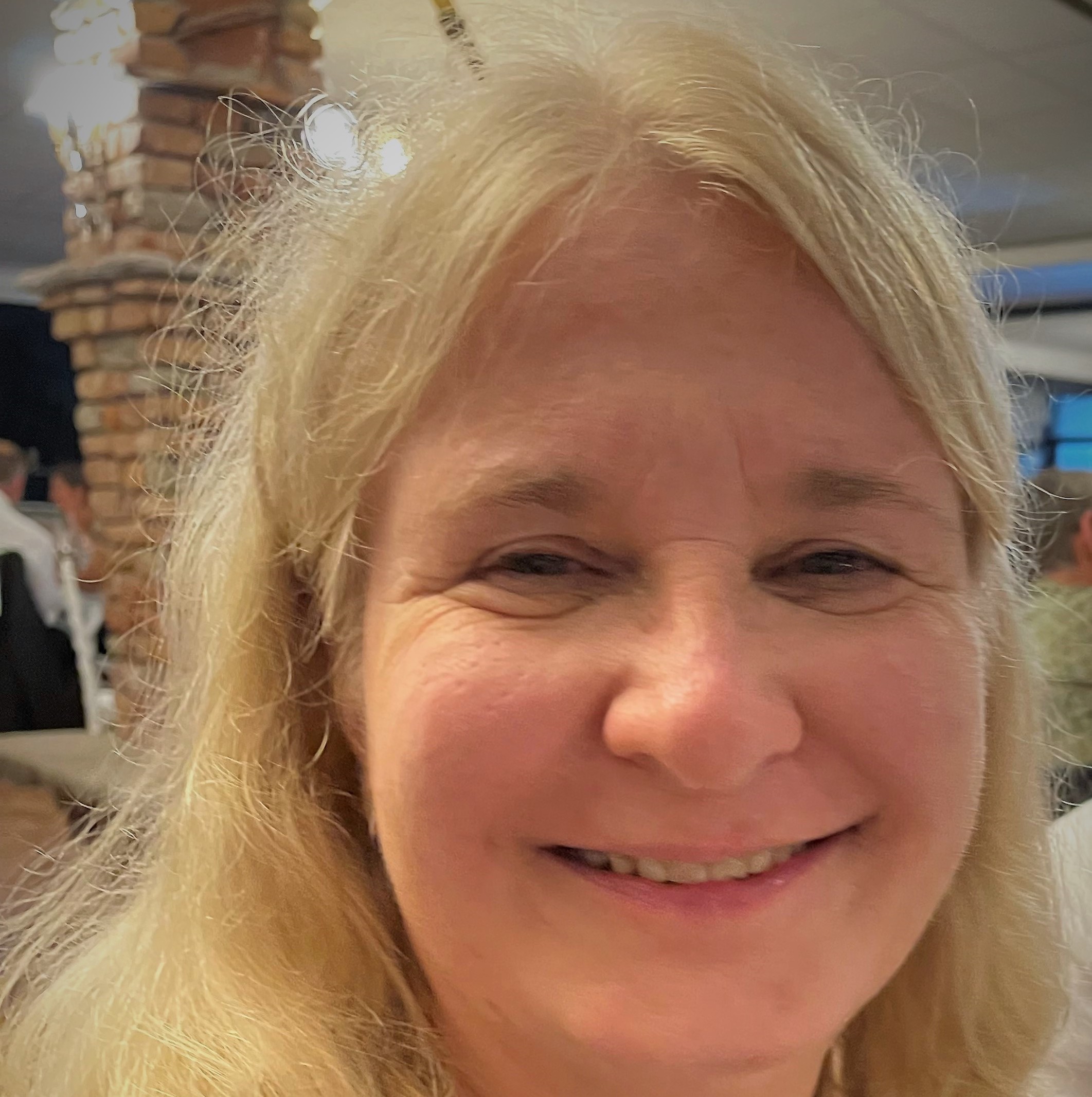
Susanne Bremer-Hoffmann, Dr. rer nat, holds a PhD degree in Biology obtained from the Charite University Hospital Berlin in Germany for her work on the development of immunotherapies against leukemia. After her post-doctoral research at the Federal Institute for Risk Assessment in Germany, Susanne moved to the Joint Research Centre (JRC) of the European Commission and became a team member of the European Centre for the Validation of Alternative Methods (ECVAM) in 1995. She was involved in formal validation studies of toxicolog read more...
The challenge of Inter-Individual Variations for the standardisation of emerging technologies
When assessing hazards to humans, inter-individual variability in biological responses to an apparently comparable stimulus is a critical parameter, and safety factors often account for the existing uncertainty in risk assessments. This practical approach offers simple solutions but also risks underestimating hazards to vulnerable populations. In the future, emerging in vitro technologies, such as population-based in vitro models, may help increase the accuracy of safety assessments. However, the use of population-based in vitro models in safety assessments is still in its infancy, and more guidance describing the biol read more...
Sebastian Hoffmann, Ph.D.
Independent Consultant
Evidence-Based Toxicology Collaboration (EBTC) / seh consulting + services

Sebastian Hoffmann is running the independent consultancy ‘seh consulting + services‘ in Paderborn, Germany, since 2009, specialised in the assessment of new approach methods (NAM) and test strategies, application of evidence-based approaches to toxicology as well as in the regulation of chemicals and cosmetic ingredients. Being statistician by training, Sebastian received a Ph.D. from the University of Konstanz (Germany) for his thesis ‘Evidence-based in vitro toxicology’. He is a key contributor to the development of the evi read more...
Marta Hugas, Ph.D.
Former Chief Scientist
European Food Safety Authority (EFSA)
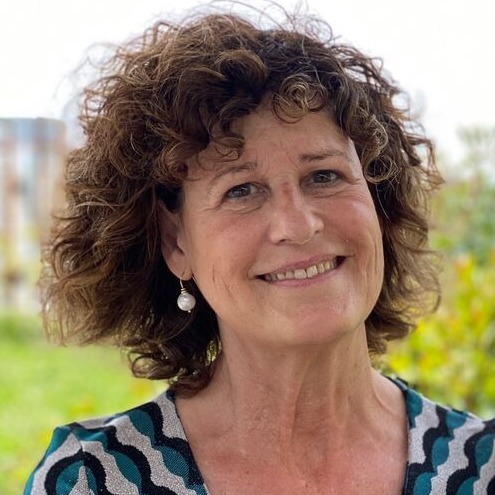
Marta holds a BSc in biological sciences, an MSc in genetics and microbial biotechnology and a PhD in food microbiology. In 2020 Marta was appointed to the scientific group preparing for the UN Food Systems Summit held in 2021 co-coordinating Action Track 2: Shifting to sustainable consumption habits. In 2023, she´s been appointed to the Scientific Advisory Committee advising the UN Food Systems Hub to reach the SDG´s. She joined EFSA in 2003 and held several scientific and managerial responsabilities: Head of Biological Haza read more...
George Kass, Ph.D.
Toxicologist
European Food Safety Authority (EFSA, Italy)

George Kass was trained as a biochemist. He received his PhD in biochemical toxicology from the Karolinska Institute in Stockholm in 1990. After a post-doc at the Swiss Federal Institute of Technology in Zurich he returned to the Karolinska Institute as Assistant Professor. In 1994 he moved to the University of Surrey in the UK where he became Professor of Toxicology. He moved to the European Food read more...
Bo Li, Ph.D.
Director General
National Institutes for Food and Drug Control (NIFDC, CN)

Dr. Li Bo is the director of drug safety of China National Medical Products Administration (NMPA), and concurrently director general of National Institutes for Food and Drug Control (NIFDC). He is also the chairman of Council for Bioassay, China Pharmacopoeia Committee, and chairman of Council for Drug Safety Research and Evaluation, Chinese Pharmaceutical Association, et al. His main research works is on safety evaluation of drugs. He firstly established a safety evaluation system in accordance with the international GLP stan read more...
Prof. Thomas Margoni , Ph.D.
Research Professor of Intellectual Property Law
the Faculty of Law and Criminology, KU Leuven (BE)

Prof. Dr. Thomas Margoni is Research Professor of Intellectual Property Law at the Faculty of Law and Criminology, KU Leuven, where he is also a member of the Board of Directors of the Centre for IT & IP Law (CiTiP). Thomas' research concentrates on the relationship between law and technology, with a focus on comparative and European copyright law. Currently, he is exploring the transformations occurring in the creation, access, and distribution of information brought by technologies like the Internet, data and AI. Examples of read more...
Open Science , Data Governance and AI: a EU legal perspective for research.
This talk will look at the dynamic and fast-evolving EU legal framework applicable to Artificial Intelligence and Data Governance and discuss how the principle of Open Science may find recognition and be further advanced with particular attention to research activities.
Laila Mouawad, Ph.D.
MSc Political Sciences
Coordinator of International Cooperation
ANVISA, Brazil
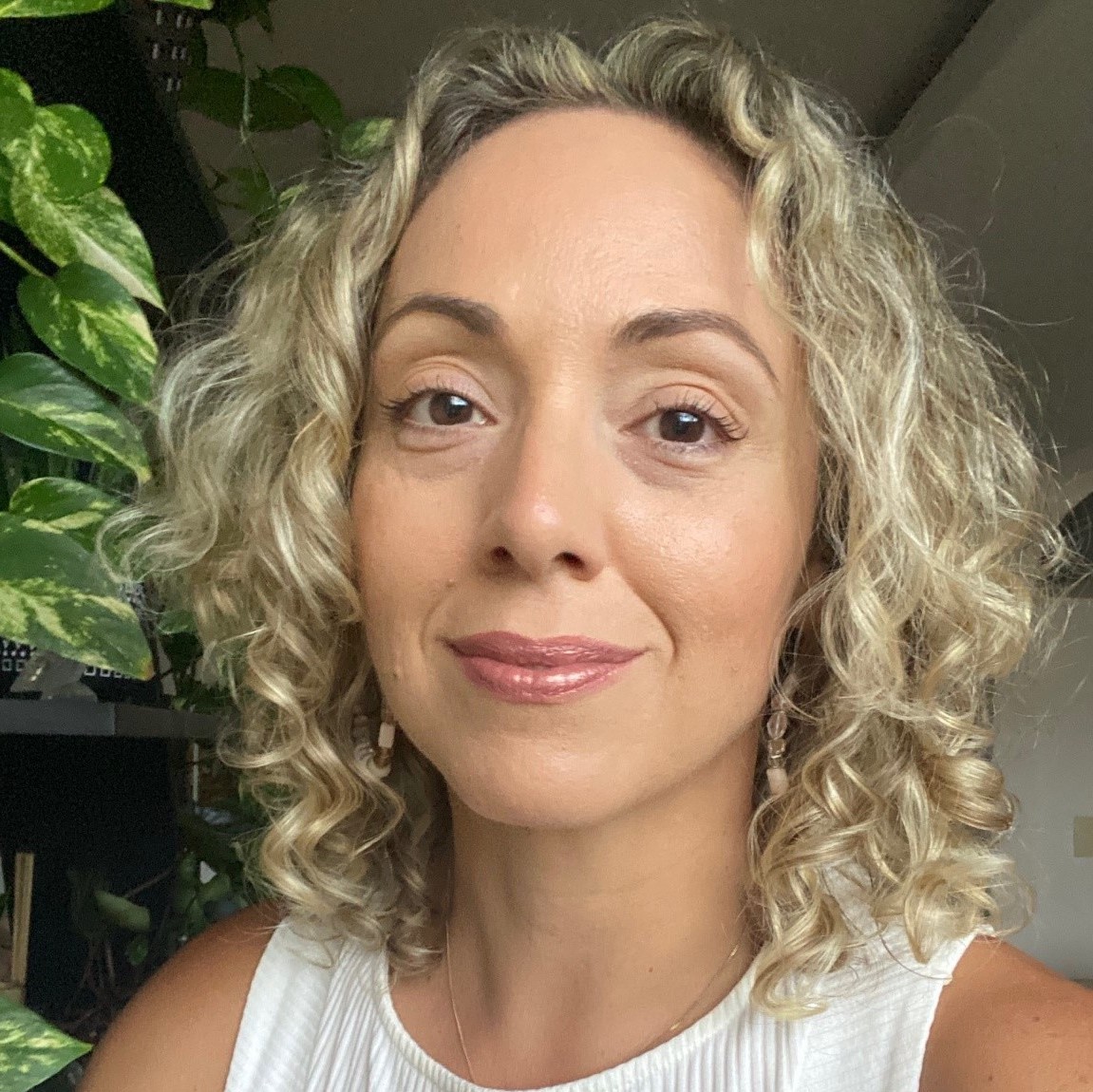
TBC
Anil Patri, Ph.D.
Director, Nanocore and Chairs FDA’s Nanotechnology Task Force
National Center for Toxicological Research (NCTR)
U.S. Food and Drug Administration (FDA)

Dr. Anil Patri serves as the Director, Nanocore and Chairs FDA’s Nanotechnology Task Force to conduct and coordinate regulatory science research, provide reviewer training, and standards development. He serves on the Nanoscale Science, Engineering, and Technology Subcommittee (NSET) on behalf of FDA. He chairs the Nanotechnology Working Group of the Global Coalition for Regulatory Science Research (GCRSR) to address emerging challenges, consensus development and capacity building. Prior to joining FDA in 2014, Dr. Patri served read more...
James Ramsay, Ph.D.
Head of Unit for Communication
European Food Safety Authority (EFSA, Italy)

Currently Head of Unit for Communication at the European Food Safety Authority (EFSA), with responsibility for communicating the Authority’s scientific and corporate activities through its website and other channels. Portfolios under my remit include content development and dissemination for risk communications, media relations, social media and analytics, social science, and scientific publishing, among others. Previous role as Head of Unit for External Relations. Prior to EFSA, I worked as a communications consultant in Lond read more...
Heather Schaefer, Ph.D.
Toxicologist in the Contaminant Assessment Branch
Center for Food Safety and Applied Nutrition (CFSAN)
US Food and Drug Administration (FDA)

Heather Schaefer is a toxicologist in the Contaminant Assessment Branch of the Center for Food Safety and Applied Nutrition (CFSAN) at the US Food and Drug Administration (FDA). During her tenure at the FDA, Heather has led multiple efforts related to reducing dietary cadmium exposure including a review of cadmium mitigation strategies, a systematic review of adverse health effects associated with oral cadmium exposure, and the development of a cadmium toxicological reference value. Heather also routinely condu read more...
Supriya Sharma, Ph.D.
Chief Medical Advisor
Health Canada

Dr. Supriya Sharma became Health Canada's Chief Medical Advisor in August 2015. In that role she provides medical and scientific advice on cross cutting files, liaises with health professional and patient groups, and acts as spokesperson on high profile files. She added these responsibilities to those in the role of Senior Medical Advisor in the Health Products and Food Branch, a role she has had since March 2013. The Health Products and Food Branch has the responsibility to regulate pharmaceuticals, medical devices, biologics read more...
William Slikker Jr., Ph.D.
Former director of National Center for Toxicological Research (NCTR)
U.S. Food and Drug Administration (FDA)

With a PhD in Pharmacology and Toxicology from the University of California at Davis, I have authored or co-authored over 350 publications that have been cited over 18,000 times with topics including developmental neurotoxicology, pharmacokinetics, systems toxicology, emerging technologies and risk assessment. I have had the privilege to mentor a dozen PhD students and over 20 Postdoctoral Fellows, serve as director of the National Center for Toxicological Research/FDA for 16 years (recently retired) and as past president of t read more...
Birgit Sokull-Klüttgen, Ph.D.
Deputy Head of the Technologies for Health Unit (F.2)
European Commission's Joint Research Centre (EC JRC)

Birgit Sokull-Klüttgen, who has a PhD in Natural Sciences (Biology), is the Deputy Head of the Technologies for Health Unit (F.2) of the European Commission's Joint Research Centre (JRC) in Ispra (Italy). Joining the European Commission in 1995, Birgit worked for many years on the scientific/technical support to the conception, implementation and monitoring of EU legislation on chemicals. Birgit is involv read more...
Weida Tong, Ph.D.
Chair of Global Coalition of Regulatory Science Research (GCSRS)
Director, Division of Bioinformatics and Biostatistics
National Center for Toxicological Research (NCTR)
U.S. Food and Drug Administration (FDA)

Dr. Weida Tong is the Chair of Global Coalition of Regulatory Science Research (GCSRS). He is working at FDA's National Center for Toxicological Research (NCTR) as a division director for Bioinformatics and Biostatistics.
Katya Tsaioun, Ph.D.
Lead of Evidence-based Toxicology Collaboration
Johns Hopkins Bloomberg School of Public Health (EBTC)

Dr. Tsaioun is an experienced executive and entrepreneur with core expertise in pharmaceutical programs de-risking strategies and managing geographically distributed research advocacy teams. Her interests are in driving innovation spanning across academic, industry, regulatory, healthcare and non-profit sectors. She spent two decades in translational drug discovery R&D before taking on the leadership position at Evidence-based Toxicology Collaboration at Johns Hopkins Bloomberg School of Public Health (EBTC), where she is lead read more...
Didier Verloo, PhD.
Head of Knowledge Innovation and Partnership management unit
European Food Safety Authority (EFSA, Italy)

Didier is heading the Knowledge Innovation and Partnership management unit in EFSA. Responsibilities include: Defining EFSA’s scientific outlook through foresight and the scanning of scientific, technologica and societal information, including emerging risk identification. Envisioning EFSA's long-term competency needs. Make EFSA join forces by setting up multilevel partnership frameworks read more...
Paul Whaley, Ph.D.
Editor-in-Chief
Evidence-Based Toxicology Collaboration

Paul Whaley, PhD, is a researcher, consultant, and academic editor, specialising in evidence synthesis methods and open science publishing practices. He has a particular interest in using systematic review and evidence mapping to make sense of research in support of policy goals, and the development and use of data standards for improving the quality of published research and allowing our approaches to storing and analysing scientific evidence to scale with the rate at which it is being produced. Paul is Editor-in-Chief of Evi read more...
Calvin Yeo, Ph.D.
Cell Biologist and Microbiologist
National Centre for Food Science
Singapore Food Agency (SFA, SG)

Dr Calvin Yeo is a cell biologist and microbiologist by training with 10 over years of experience at the agency. His current research interests focused on the safety of nanomaterials in food, novel foods, and food botanicals. He currently has several research grants as a co-investigator looking at the food safety aspects of cultured meats. He is also particularly interested in the research of New Approach Methodologies (NAMs) for use in Toxicology. At the National Centre for Food Science, Dr Yeo is responsible for leading seve read more...




